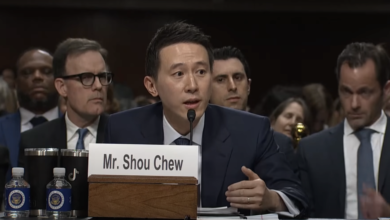The writer is a
veteran and member of March Forward! which is an organization of veterans,
active duty service members and military families opposed to the war. To read
more statements from March Forward! click here.
New statistics show the rate of suicides in the military
continues to soar, with June breaking a record for the largest number of self-inflicted
deaths in U.S. military history. There were 21 active duty and 11 reserve
soldier suicides in June, including seven in Iraq and Afghanistan. Suicide
rates in the military for the first half of the year are up 20 percent over
2009. According to TheHill.com, “Based on the most recent data, more than
34,500 people died from suicide in the U.S. in 2007.” Approximately one-in-five
of those are veterans. A CBS News study in that same year polled suicide rates
in 45 states and discovered that a national average of 125 veterans take their
lives every week.
|
Parents mourn the suicide of their son |
These suicide figures correspond with dramatic increases in
military discharges for mental disorders directly related to the wars. In a
recent article in USA Today, it was revealed that Army records show a 64
percent increase in discharges due to mental illness from post traumatic stress
disorder or traumatic brain injury since 2005. “In more than 120 studies done
on the issue of completed suicide, 90% of the individuals were suffering from
mental illness at the time of their death”. (TheHill.com, June 28)
So what has been the Pentagon’s response to the suicide
crisis? In March 2009, the Army created the Army Suicide Prevention Task Force.
The first thing the task force did was have an Army-wide stand down to
basically order everyone not to commit suicide. They showed them a hastily put
together prevention movie. The problem was that some of the “soldiers” in the
film were actors and the movie was laughed at by real soldiers who complained
that it did not reflect the many problems of military life.
Ignoring the recent statistics, at a June meeting between
the task force and generals from other branches of the military with the Senate
Armed Services Committee, General Peter Chiarelli reported great strides were
being made in suicide prevention. All the generals agreed at the hearing that
prevention starts with leadership in encouraging soldiers to come forward with
mental health problems. The other issue they agreed upon is the importance of
family connectedness for individuals suffering from depression and drug and
alcohol abuse.
The contradiction that generals face here is that they are
the biggest part of the problem and not part of the solution at all. From the
very first day of boot camp, a soldier is trained to be tough, to be all you
can be, and to suck up pain to carry out a soldier’s mission. Soldiers are
brainwashed to think they are superior and braver than their enemy. This basic
element of military orientation flies in the face of saying there is no stigma
in seeking mental health services, as the generals now claim. Soldiers feel
they will be disgraced, not trusted in their units and be turned down for
promotion if they seek assistance.
As big as battlefield trauma is in contributing to mental
health problems and suicide, multiple tours of duty to Iraq and Afghanistan are
also a major factor. According to USA Today, “Army Lt. Col. Rebecca Porter, a
behavioral health official, said research shows ‘a clear relationship between
multiple deployments and increased symptoms of anxiety, depression and PTSD.’”
The “family connectedness” the generals sang about in Congress can never happen
with the family separation that comes with multiple deployments. As the
occupation of Iraq continues and as casualties grow in Afghanistan, this health
crisis will only get worse. The only way it will get better is to end the
occupations and to bring the troops home now.






